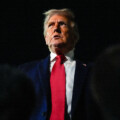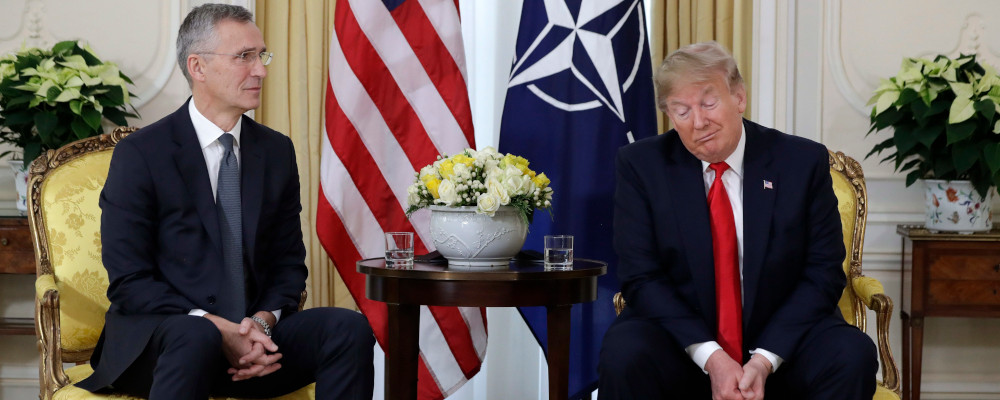United States Secretary of Defense Robert Gates told a NATO meeting in Brussels in 2011 that the Alliance faced “the real possibility [of] a dim, if not dismal future.” Interventions in the Balkans and Libya had been very messy, the war in Afghanistan was not going well, and many of the nations represented in NATO’s headquarters in Brussels were not pulling their weight.
Gates was scathing as he continued:
Some two decades after the collapse of the Berlin Wall, the U.S. share of NATO defense spending has now risen to more than 75 percent—at a time when politically painful budget and benefit cuts are being considered at home. The blunt reality is that there will be dwindling appetite and patience in the U.S. Congress…to expend increasingly precious funds on behalf of nations that are apparently unwilling to devote the necessary resources or make the necessary changes to be serious and capable partners in their own defense. Nations [are] apparently willing and eager for American taxpayers to assume the growing security burden left by reductions in European defense budgets.
Three years later Russia sent its “little green men” into Crimea, a part of Ukraine since 1954. This invasion, carried out in flagrant defiance of a treaty signed by Russia in 1992 passed almost without complaint. Certainly, NATO did nothing. Nor did the alliance do anything more than mount ineffective sanctions against Moscow when Russia sponsored and assisted separatist rebellions in Ukraine’s eastern oblasts.
It took a full-scale Russian invasion of Ukraine in February 2022 to awaken the West and NATO. Suddenly NATO members realized that they were all but completely unprepared should President Putin’s Russia swallow Ukraine and begin to eye the Baltic nations, Poland, and other former satellites of the Soviet Union. The Ukrainians fought, held off the invaders, and soon began to press them back with aid from the West. NATO revived, and defence budgets began to rise rapidly with more and more members reaching (with eleven even surpassing it in 2023) the alliance goal of two percent of GDP spent on defence. And with Finland and Sweden, two historically neutral nations joining, NATO was substantially stronger than it had ever been.
But as Secretary Gates had pointed out in 2011, the reality was that the U.S. remained restive. Donald Trump, elected president in 2016, was no friend to the alliance—and much too friendly with Putin. As he told senior officials of the European Union at Davos in 2020, “You need to understand that if Europe is under attack we will never come to help you and support you….NATO is dead, and we will leave, we will quit NATO.” Trump could not carry out his threats before he lost the 2020 presidential election, and President Joe Biden fully supported the Ukrainians and the NATO Alliance.
But Trump is not yet finished politically, and he might very well win the 2024 election. His campaign website notes that “We have to finish the process we began under my administration of fundamentally re-evaluating NATO’s purpose and NATO’s mission.” What that might mean is less than clear, but what is certain is that Trump’s acolytes in Congress have been blocking financial and military aid to Ukraine. Trump himself has stated that he could end the war in 24 hours. That can only mean that all aid to Kyiv would cease and Ukraine would be forced to surrender its eastern oblasts to Moscow.
In December last, Congress passed legislation that would prevent a president from pulling out of NATO without approval from the Senate or an act of Congress. That is certainly useful—but only if the Senate is not controlled by Republicans or if there are not enough Senators and Representatives so cowed by Trump and his MAGA Republicans that they could not get a majority to vote for withdrawal. The Senate looks likely to have a Republican majority after the election; the House remains up for grabs, but much depends on the strength of Biden’s campaign.

So where are we now? NATO today is certainly stronger than it was in 2011 when Gates issued his warning. The Biden administration has been very supportive of Ukraine and, should Biden be re-elected, it would certainly continue efforts to aid Kyiv. But if Trump wins, Ukraine will likely face defeat thanks to administration pressure and the end of American support. In its own interests, Europe could continue to offer money and munitions, but the heart of its efforts to aid the fight against Putin would be gutted. Indeed Hungary, Slovakia, and to a lesser extent Turkey have already been less than enthusiastic about supporting Ukraine.
And if Trump acts upon his worst instincts and pulls the U.S. out of the alliance, NATO itself, with its superpower defecting, might straggle on, but it likely would not last long. The Europeans might try to turn what remains into a European defensive alliance, but with France and Germany struggling to be the dominant player and with Britain weakened by Brexit and weak leadership, that will be difficult at best. Putin will be exultant, and the Poles and the Baltic states will panic in the face of existential threats. War after Russia recovers from its mauling in Ukraine will be a real possibility, and democracy will be threatened as never since 1939.
If this all comes to pass, what about Canada? Ottawa has so weakened the Canadian Armed Forces over the last decade, its numbers low and equipment obsolete, that it scarcely matters militarily if Ottawa were to remain in the alliance as the sole non-European member. The Canadian government would be so consumed by its efforts to keep its economy running in the face of Trumpian tariffs that it would have little time to think of Europe’s woes. In the end, Canada’s sole option would be to seek shelter under the eagle’s wings on whatever terms it could secure.
Recommended for You
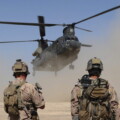
A message to President Trump, from a Canadian veteran of the war in Afghanistan

‘This is not a Jewish problem, it’s a Canada problem’: Holocaust remembrance demands action, not slogans
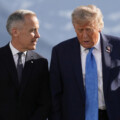
Carney is right about Canada’s place in the world—but words are not enough
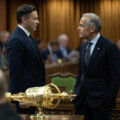
Carney and Poilievre agree on Canada’s biggest problems—now what?: The Weekly Wrap
